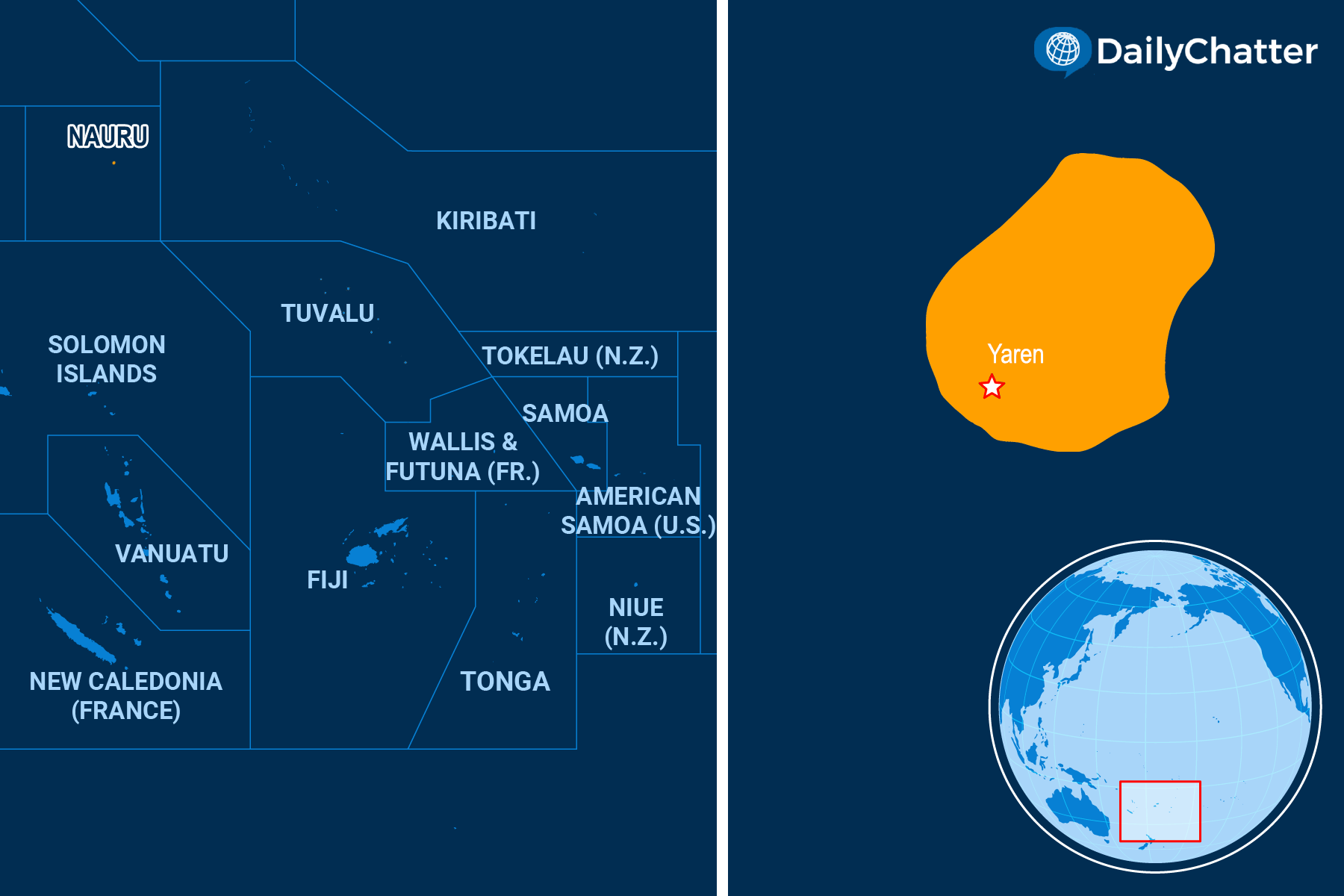Unfriended

The Pacific state of Nauru decided to cut diplomatic ties with Taiwan and recognize China instead this week, a few days after the Taiwanese elected a Beijing-critic as their president, shrinking the country’s list of allies and threatening an imbalance of power in the region, Reuters reported.
China claims Taiwan as part of its territory, leaving other countries obliged to have ties with only one or the other. While many governments recognize the People’s Republic while maintaining informal relations with Taiwan, a dozen have decided to have embassies in Taipei rather than in Beijing.
Nauru is the latest of 10 countries that have switched in favor of China since 2016. It joined other Pacific nations, such as Kiribati and the Solomon Islands, that made similar moves in 2019, often out of economic interest.
It had already done so between 2002 and 2005. Reverting to that stance is “in the best interest” of Nauru and its people, the Nauruan government said.
Last week, William Lai, dubbed a “dangerous separatist” by Beijing, won Taiwan’s presidential election and is set to enter office on May 20. Taiwanese officials accused Beijing of ambushing Nauru in the sensitive post-election period.
The Chinese-Taiwanese race for diplomatic relations in the Pacific Ocean is also a game of influence, of which the US and Australia are also players and “Dollar diplomacy” is a powerful pawn, wrote Reuters.
Australia has close ties with Nauru. The tiny island currently receives substantial aid from Australia and uses its currency. It also hosts a refugee center on behalf of Australia.
Nonetheless, an Australian bank’s decision to close operations in Nauru and the government’s plan to wind down the refugee center have signaled dwindling investment. Taiwan said this was to blame for Nauru’s decision, which the Australian government denied, the Sydney Morning Herald reported.
Australia had already made a deal last year with Vanuatu, another Pacific nation and Taiwan ally which, in exchange for climate asylum for its citizens, granted Australia veto power over foreign affairs – and thus over a possible recognition of China.
The Australian government now faces pressure to strike a similar agreement with Nauru. Although this would not reverse Nauru’s decision, proponents argued it would curb Chinese influence in the Pacific.

Subscribe today and GlobalPost will be in your inbox the next weekday morning
Join us today and pay only $32.95 for an annual subscription, or less than $3 a month for our unique insights into crucial developments on the world stage. It’s by far the best investment you can make to expand your knowledge of the world.
And you get a free two-week trial with no obligation to continue.
